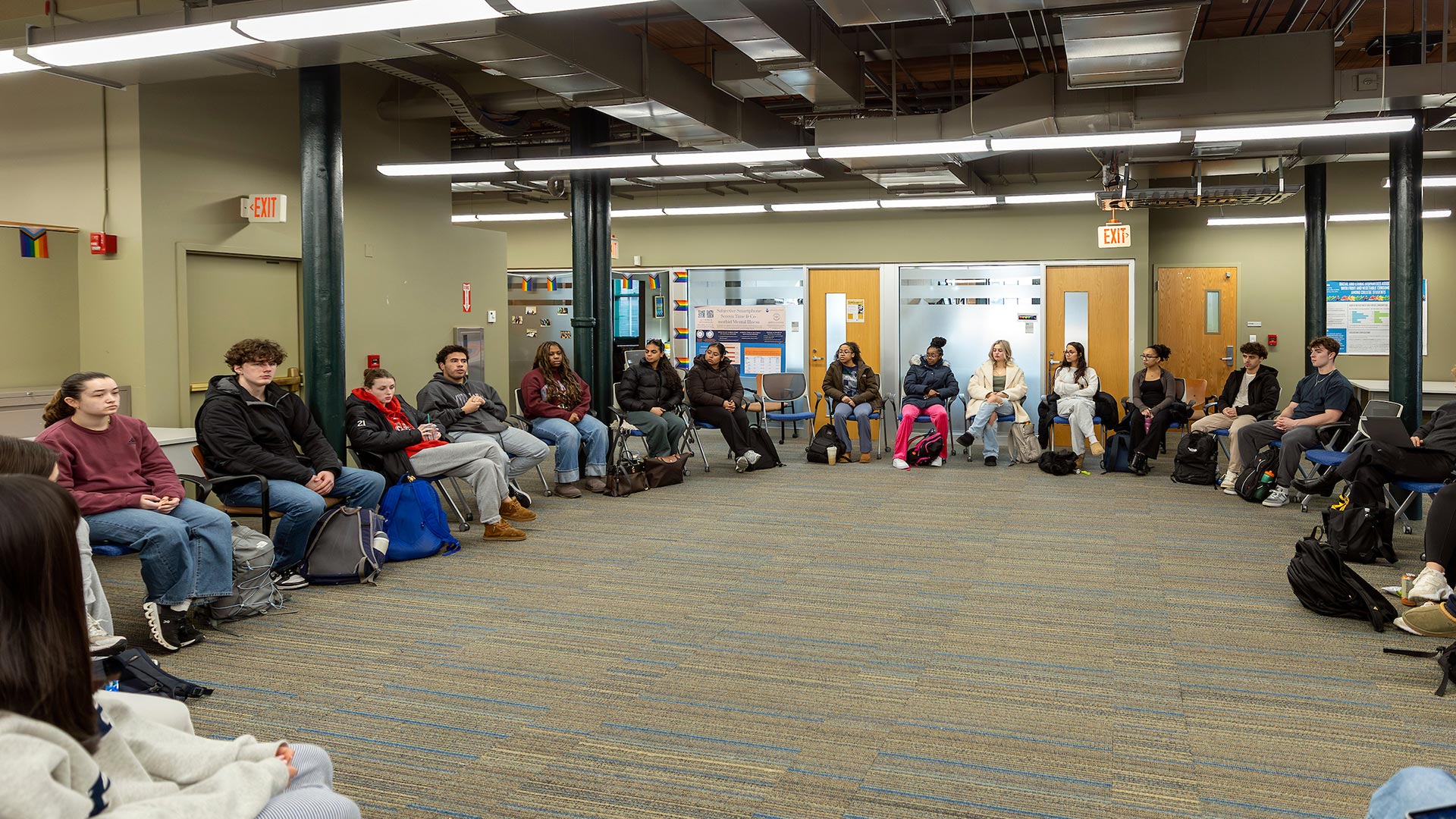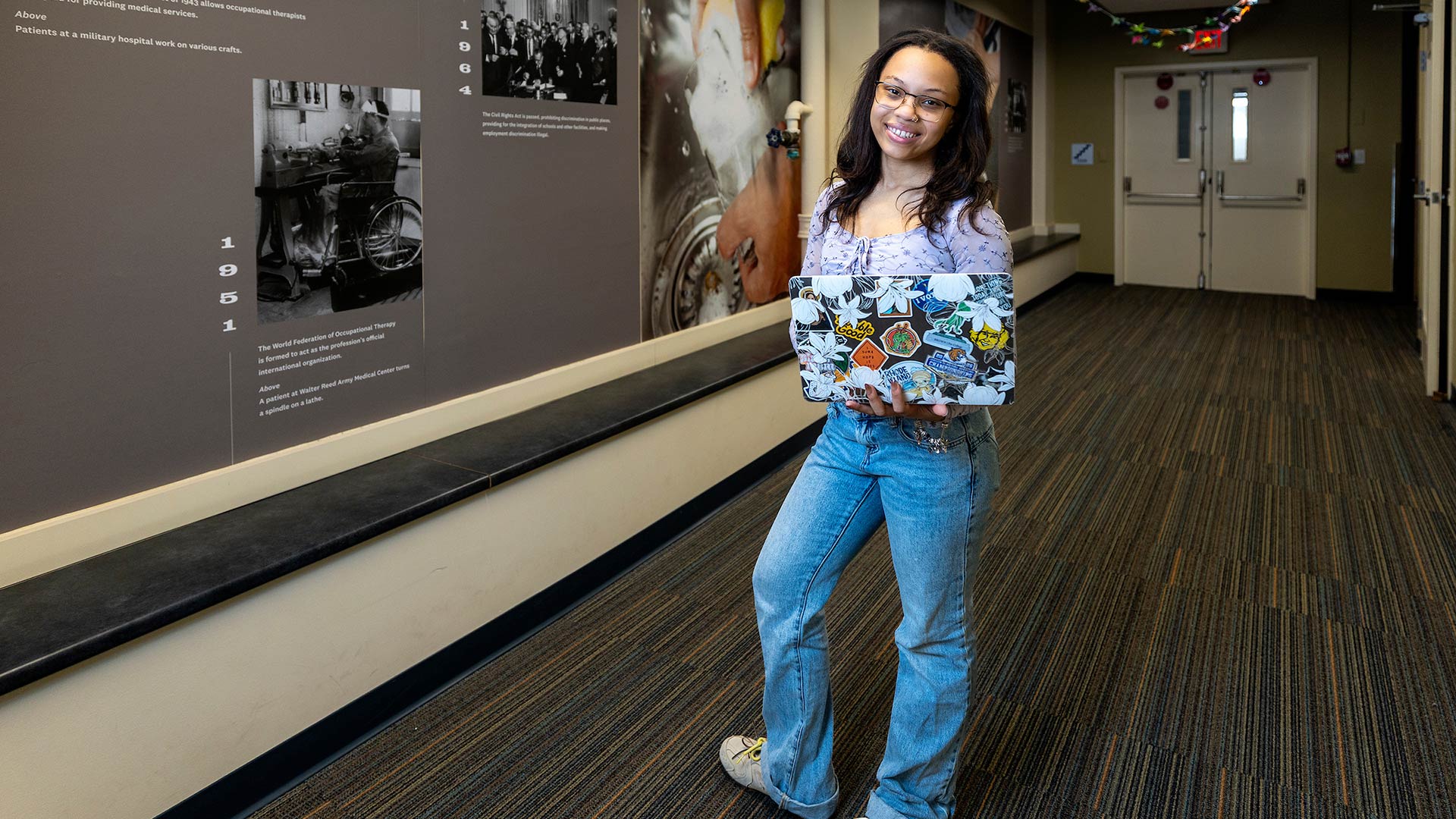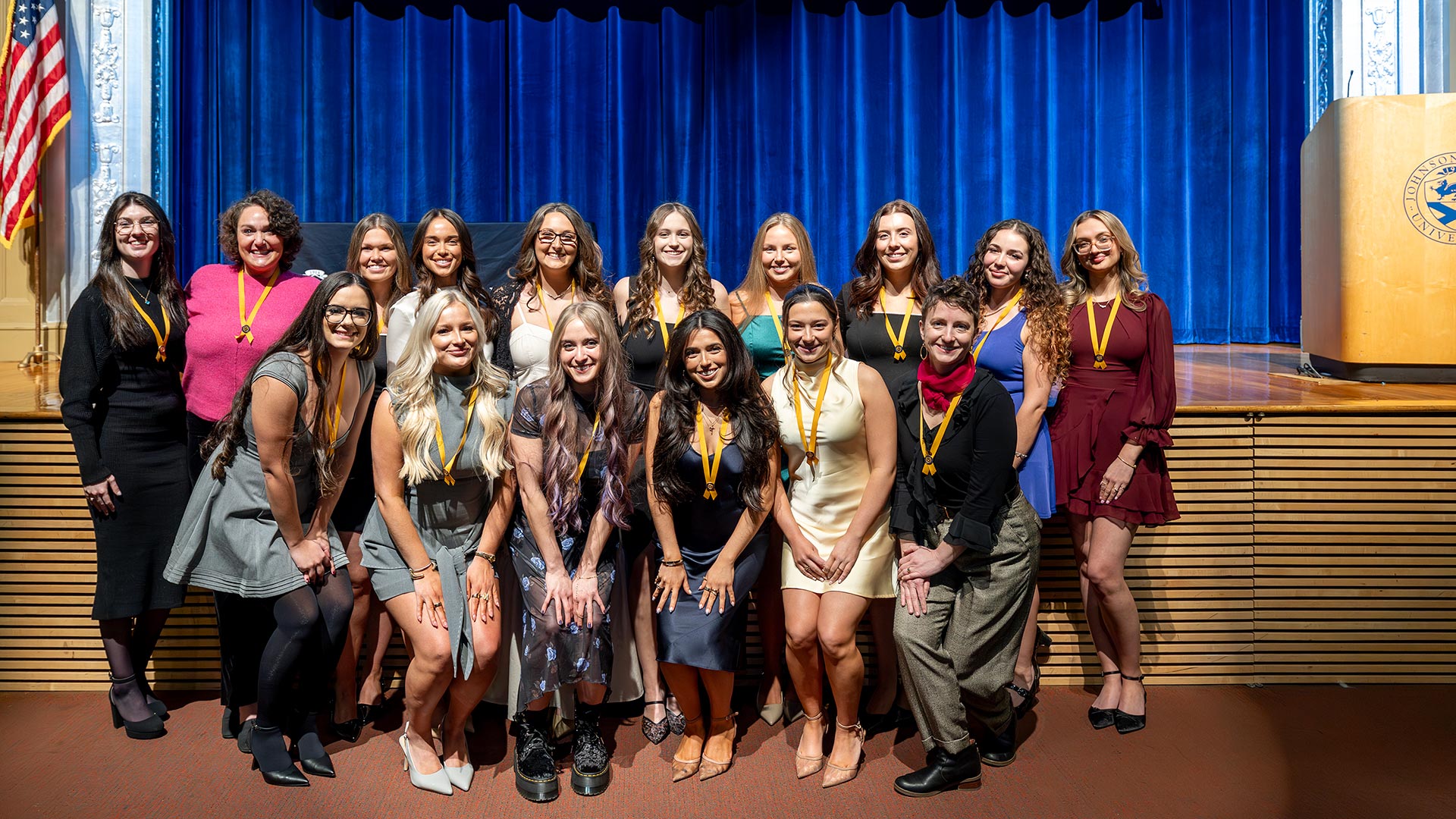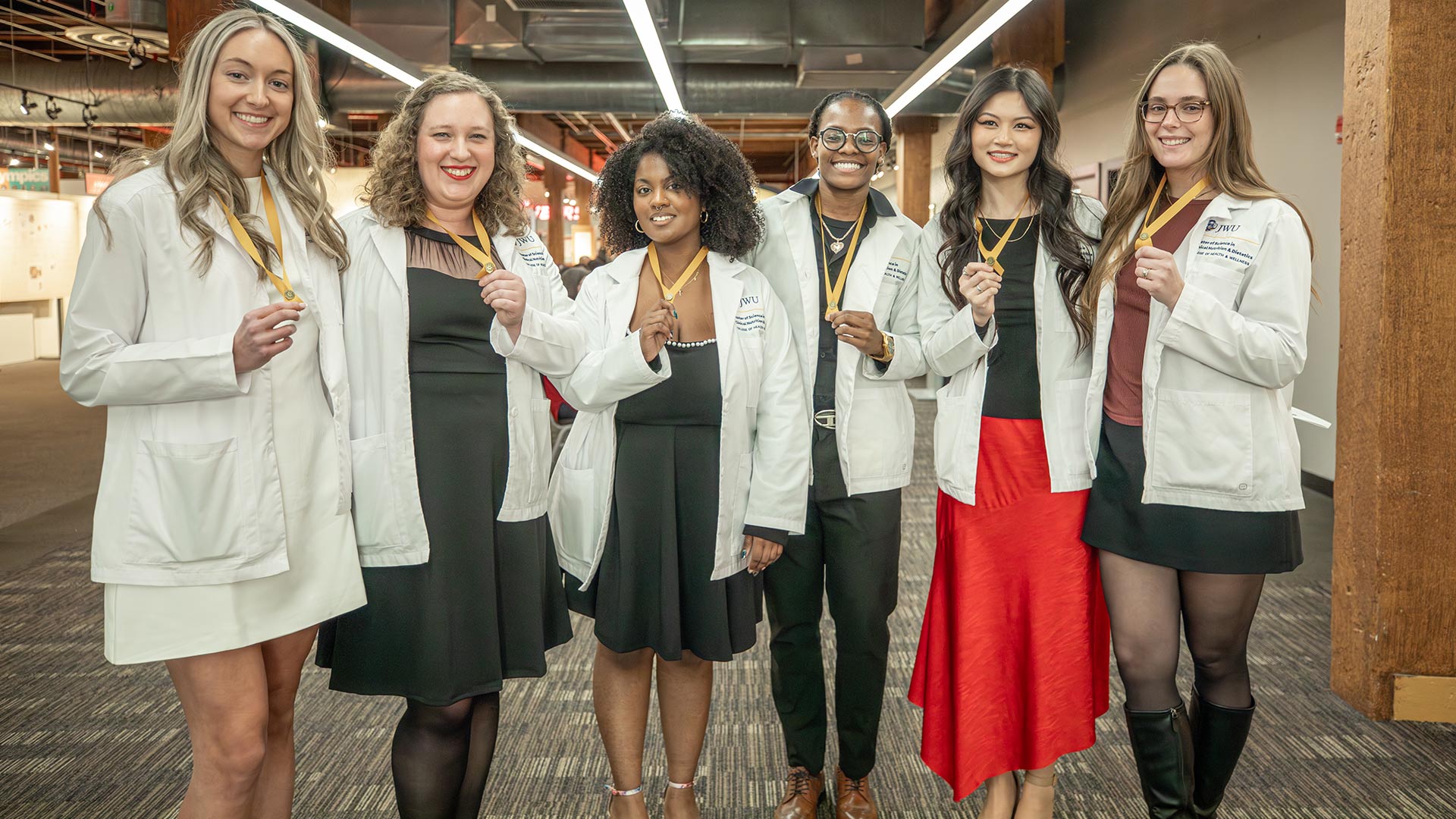Reaching Across the Barn: OTD and Equine-Assisted Therapy
July 2025 Update: Equine Studies has been incorporated as a specialization within the Animal Science bachelor of science and will no longer be a standalone program.
September 21, 2022 Update: Starting with the Fall 2023 semester, JWU’s current equine programs will be restructured into a single Bachelor of Science degree in Equine Studies with the option for students to specialize in Equine Business Management or the fast-growing area of Equine Assisted Services. In addition, the university will offer a new bachelor’s degree program in Animal Science with the option for students to specialize in Pre-Veterinary Studies or Equine Science.
Alongside this exciting new rollout, the university will deliver these new programs in Rhode Island, closer to our central campus. After the completion of the Spring 2025 semester, we plan to close the Center for Equine Studies in Rehoboth, Massachusetts.
There’s more to an occupational therapist’s work than what can be found in hospital settings. The faculty of JWU’s Occupational Therapy Doctorate (OTD) program know this, and are teaching their first cohort of students just how wide the world of occupational therapy can be with a visit to the Center for Equine Studies.
As part of an ongoing research initiative, Associate Professor Amy Wagenfeld brought her cohort of OTD students to the center to explore how occupational therapists can use horses as part of a robust therapy program. Occupational therapists help people of all ages to engage in their daily lives in a safe and healthy manner, from work and recreation to tasks such as getting dressed, cooking and driving. They do this in various settings with various tools to help patients’ strength and mobility. Hippotherapy is a growing trend in the field, and JWU is embracing it.
"I am more interested in equine studies, and I may consider my capstone project in this setting."
Erin Cardea, assistant professor of equine science, took the OTD students through a basic introduction of hippotherapy and how they may be able to incorporate these techniques into their work as occupational therapists.
Although only a few weeks into the program, the class engaged in a discussion of how a patient’s skills, movement and mental health may be improved by hippotherapy. In addition to balance, core strength, coordination, and trunk rotation, patients may see an improvement in self-confidence and mood. All of these elements come together for a holistic approach to healing — and studies show it’s working.
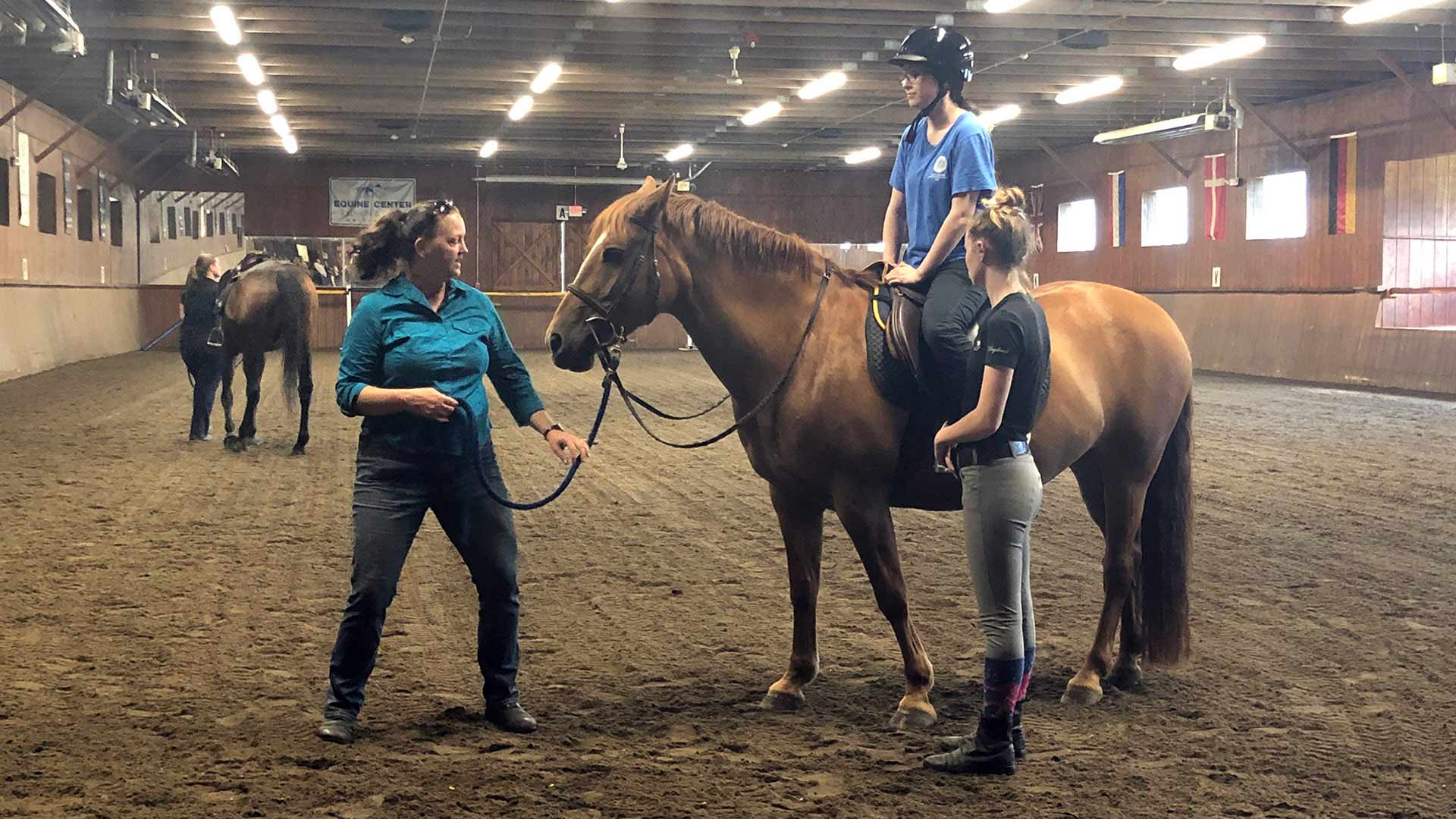
Hippotherapy is an evidence-based practice, which makes providing sweeping statistics difficult. However, the American Hippotherapy Association provides samples of case studies, experimental research, observational design and more. In addition, the organization provides a timeline of hippotherapy and its emergence in fields like occupational therapy, physical therapy and more.
After a brief tour of the barn and its surrounding areas, students headed down into the ring where two horses were brought out for hands-on demonstrations. Any student who wished to ride strapped on a helmet and, with the help of Associate Professor Jackie Bowser mounted the horses and rode them around the ring. Cardea instructed each student to pay close attention to their posture, and every so often would ask them to slouch or move their hips so they could feel the difference of movement.
"I hadn't considered incorporating equine-assisted therapy into my practice, but this event changed my mind."
While some class members rode, others watched the movement of the horses and noted how they mimicked human movement. In all, the major takeaway for this class was that hippotherapy offers OT patients benefits worth exploring.
“I really enjoyed learning so much about that side of therapy and equine studies,” Matthew Lichter ’22 says. “Being able to work in that setting regularly would be amazing to me.” In fact, visiting the Center for Equine Studies and riding the horses inspired Lichter to consider other ways to incorporate equine studies into his OTD program. “I am more interested in equine studies, and I may consider my capstone project in this setting.”
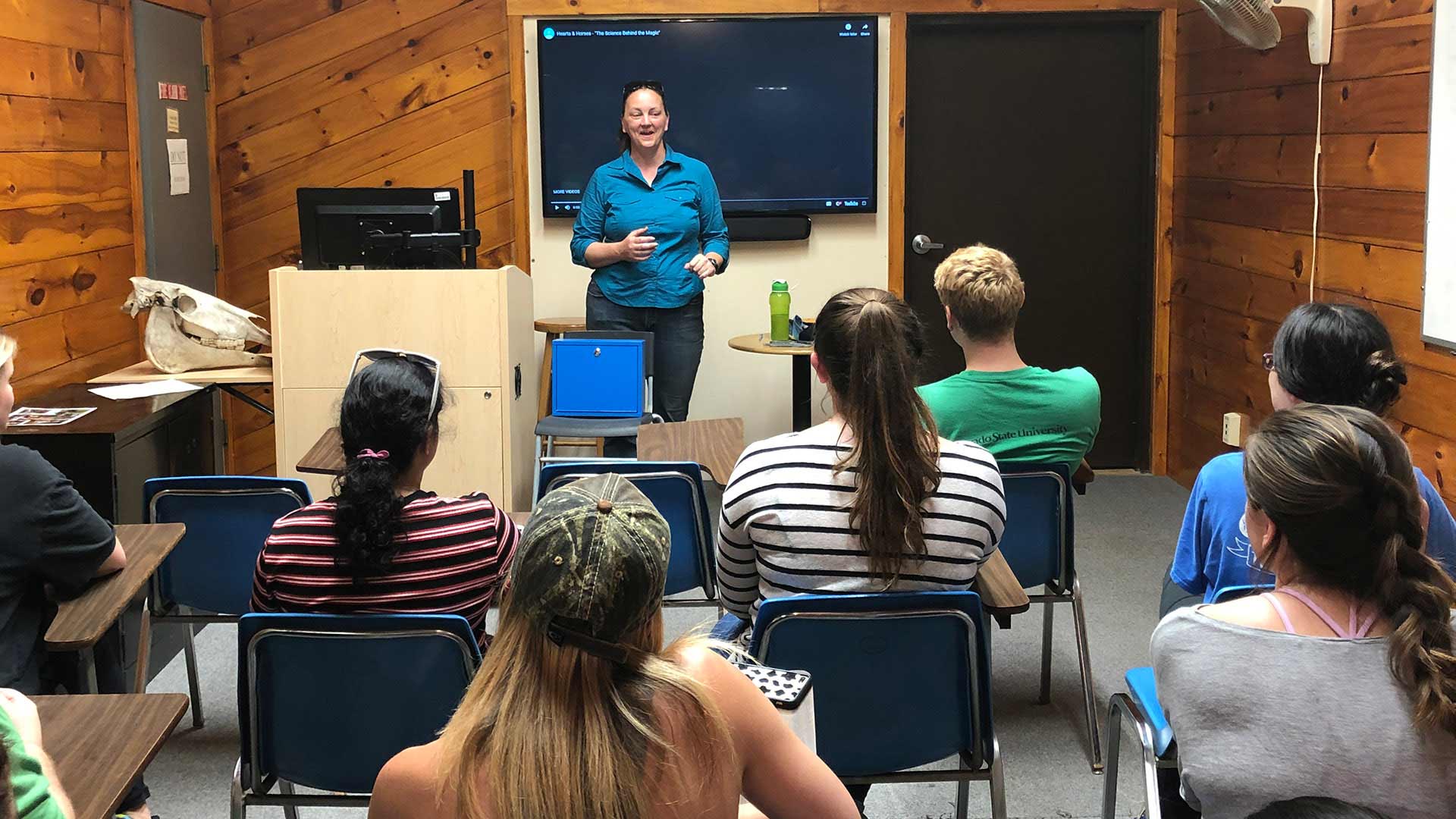
“It was a bit scary for me to ride a horse for the first time, but I was utterly enthralled,” Lisa Benson '22 says. “My ultimate career goal is to work as an OT in mental health. I hadn't considered incorporating equine-assisted therapy into my practice, but this event changed my mind. Horses embody a gentle strength and presence, and I can picture how a well-trained horse could benefit a patient with behavioral or developmental disorders.”
